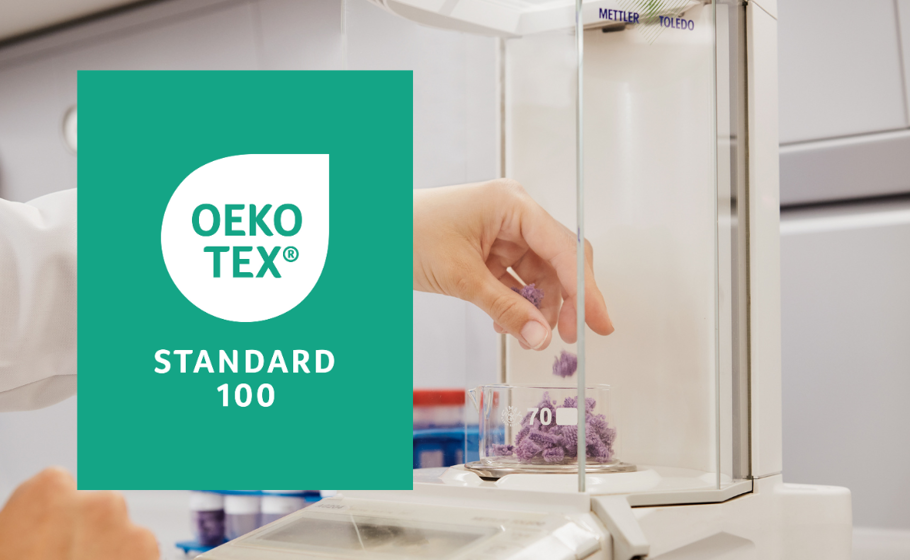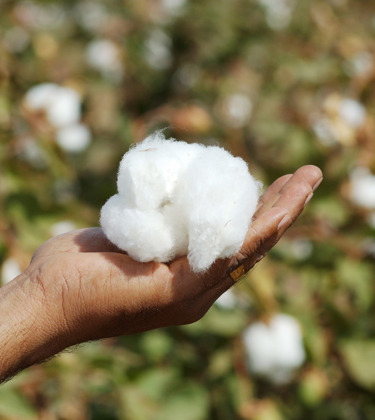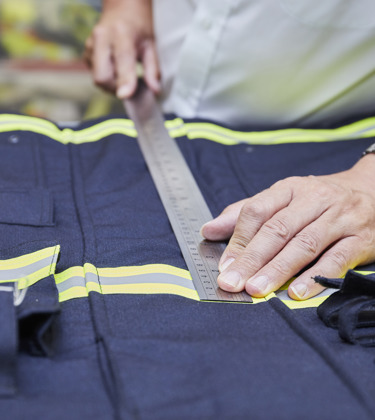Global Regulatory Compliance
Have peace of mind knowing your product meets global compliance standards, including the REACH directive, and the ECHA-SVHC candidate list.
Over 30 Years' Experience
With decades of trust and expertise, the OEKO-TEX® STANDARD 100 certificate stands as a beacon of reliability for product safety in the textile industry.
Modular System
Under the OEKO-TEX® modular system, testing costs for finished products are waived if all components have already been successfully tested according to OEKO-TEX® STANDARD 100.

Find Out More
OEKO-TEX® STANDARD 100 Requirements
To achieve OEKO-TEX® STANDARD 100 certification, textiles must undergo rigorous testing for harmful chemicals and substances. This includes:
- Testing for legally banned and regulated substances
- Ensuring the absence of harmful levels of substances which may be harmful to human health
- Parameters for wellbeing and good health
Products must meet strict limit values to pass certification, ensuring they are safe for human use from the raw material stage through to the finished product.
OEKO-TEX® STANDARD 100 Certification Process
- Application: Submit an application and supporting documents, detailing your products and production processes
- Application Review: Our team reviews all documents submitted to ensure the application is complete and ready for quotation
- Sample Testing: Send samples to our laboratory for comprehensive testing
- Evaluation: Our experts conduct a thorough analysis against OEKO-TEX® STANDARD 100 criteria
- On-Site Visit: Inspection and evaluation of your company to occur either before or directly after certification
- Report & Certificate: Delivery of a detailed test report and issue of certificate valid for one year
Who Does the OEKO-TEX® STANDARD 100 Certification Apply To?
OEKO-TEX® STANDARD 100 certification applies to all stages of textile production, including:
- Raw Materials: Natural and synthetic fibers.
- Intermediary Products: Yarn & fabric (raw and finished)
- Finished Products: Clothing, home textiles and accessories
- Non-Textile Components: Buttons, zippers, and decorative elements
This certification is suitable for manufacturers, brands, and retailers looking to demonstrate their commitment to product safety and sustainability.

Ready to take the next step in sustainable textile production? Contact us today to learn more about OEKO-TEX® STANDARD 100 certification and how it can benefit your business. Our team of experts is here to guide you every step of the way.

 Optional Testing
Optional Testing The OEKO-TEX® STANDARD 100 Certification Includes Optional Testing For:
- GMO (genetically modified organisms)
- Footwear
- PPE
- Recycled materials
- Special Articles
Products with at least 70% organic cotton and GMO content below 5% qualify for the OEKO-TEX® ORGANIC COTTON Blended label, while those with 100% organic cotton and GMO content below 5% can be labeled OEKO-TEX® ORGANIC COTTON.
 Sister Company BTTG®
Sister Company BTTG®PPE Testing & Certification
While OEKO-TEX® STANDARD 100 certification ensures your materials are tested for harmful chemicals, BTTG®, our specialist partner laboratory, provides comprehensive testing and certification for PPE. From flame retardancy and chemical resistance to physical performance, BTTG® is a Notified Body and Approved Body for PPE, trusted across global supply chains.


 Shirley® Roadshow
Shirley® RoadshowWant to stay ahead on OEKO-TEX® standards?
Join us to learn how OEKO-TEX® certifications can help your business build transparency across the supply chain, meet rising consumer and regulatory demands, and stay ahead of key industry themes such as sustainability, chemical safety, and responsible production.
Coming to locations across the UK – don’t miss your chance to connect with our experts.







